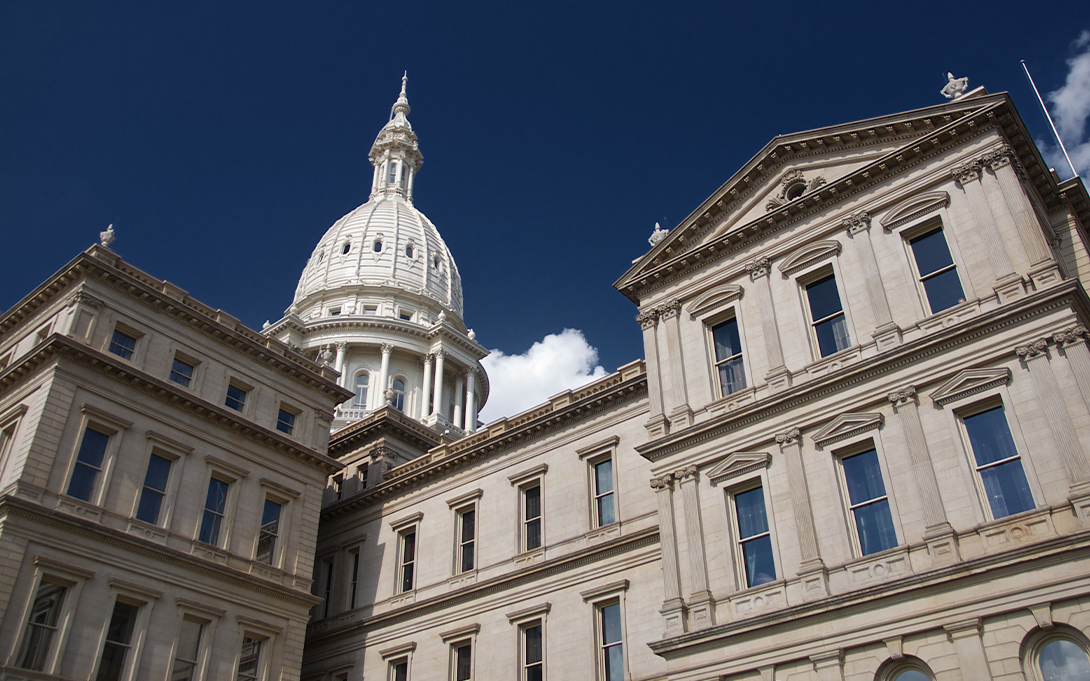
Over half of Michigan local officials currently rate their jurisdiction’s overall relationship with the State government as just fair or even poor, while 34% of local officials say it is either good or excellent. It is an important relationship because so many aspects of governance and public service delivery depend on the state and local levels of government coordinating and cooperating with each other.
The Spring 2023 Michigan Public Policy Survey (MPPS) of Michigan’s local government leaders asked about the relationship between their jurisdiction and Michigan’s state government and compared the responses with answers to similar questions asked in Fall 2016.
“Local leaders are still overwhelmingly concerned about the State taking too much decision-making authority away from local governments, and increasingly think the State does not value local input,” said Debra Horner, MPPS senior program manager.
The findings come just as the state government appears poised to preempt local authority on siting decisions for large-scale renewable energy projects (Michigan Senate votes to override local decisions on wind, solar energy, Bridge Michigan, November 8, 2023) to address threats from climate change by speeding the state’s transition to green energy sources. Traditionally, land use planning and zoning has been one of the most important policy areas left to local governments.
In both 2016 and 2023, the MPPS asked about detailed aspects of State-local relations in Michigan and found concerns remain high in several areas while increasing in others. In 2023, 70% of local officials say that the state is taking too much decision-making authority away from local governments, essentially unchanged since 2016. Meanwhile, a majority of local leaders believe the State does not treat jurisdictions fairly across the board, similar to assessments in 2016.
The largest shift in opinion over the last six years comes among local officials who say the state does not value local input. In 2016, local leaders were more likely to believe the state government valued input from local governments (43%) than thought it did not (35%). Today, just 27% statewide say the state government values local opinions, while nearly half (47%) say it does not.
“One factor in that decline may be the shift from Republican to Democratic control of the Governor’s office and state legislature, with local leaders’ assessments essentially flipping simultaneously along their own partisan lines,” according to Tom Ivacko, executive director of the Center for Local, State, and Urban Policy (CLOSUP), which administers the MPPS.
Among MPPS respondents who self-identify as Republicans, good or excellent ratings of their government’s relationship with the State government declined from 55% in 2016 to 32% in 2023. Over that same period, Democrats’ assessments increased from 37% to 57% positive. Meanwhile, Independents’ positive ratings of their government’s relationship with the State declined from 36% to 31%. Meanwhile, partisanship appeared to play little role in assessments of more detailed aspects of state-local relations.
The data presented in this policy brief come from the Spring 2023 MPPS, an ongoing census survey of all 1,856 general purpose local governments in Michigan conducted since 2009 by CLOSUP at the University of Michigan’s Gerald R Ford School of Public Policy. The program is a partnership with Michigan’s local government associations. The Spring 2023 wave was conducted February 6 – April 17, 2023. Respondents include county administrators, board chairs, and clerks; city mayors, managers, and clerks; village presidents, managers, and clerks; and township supervisors, managers, and clerks from 1,307 jurisdictions across the state, resulting in a 70% response rate by unit.
